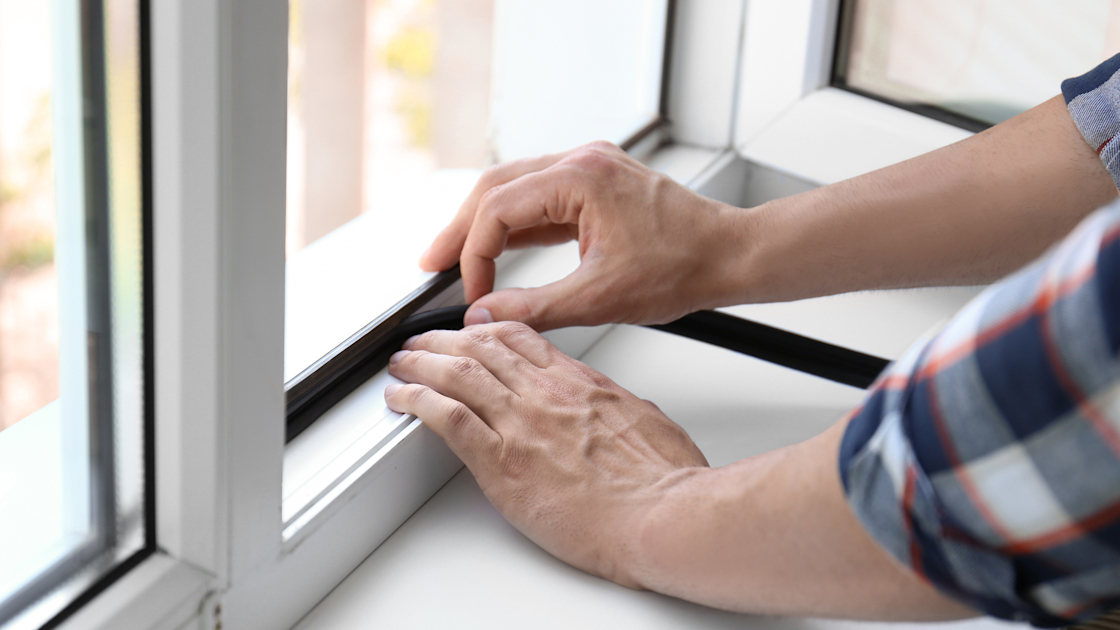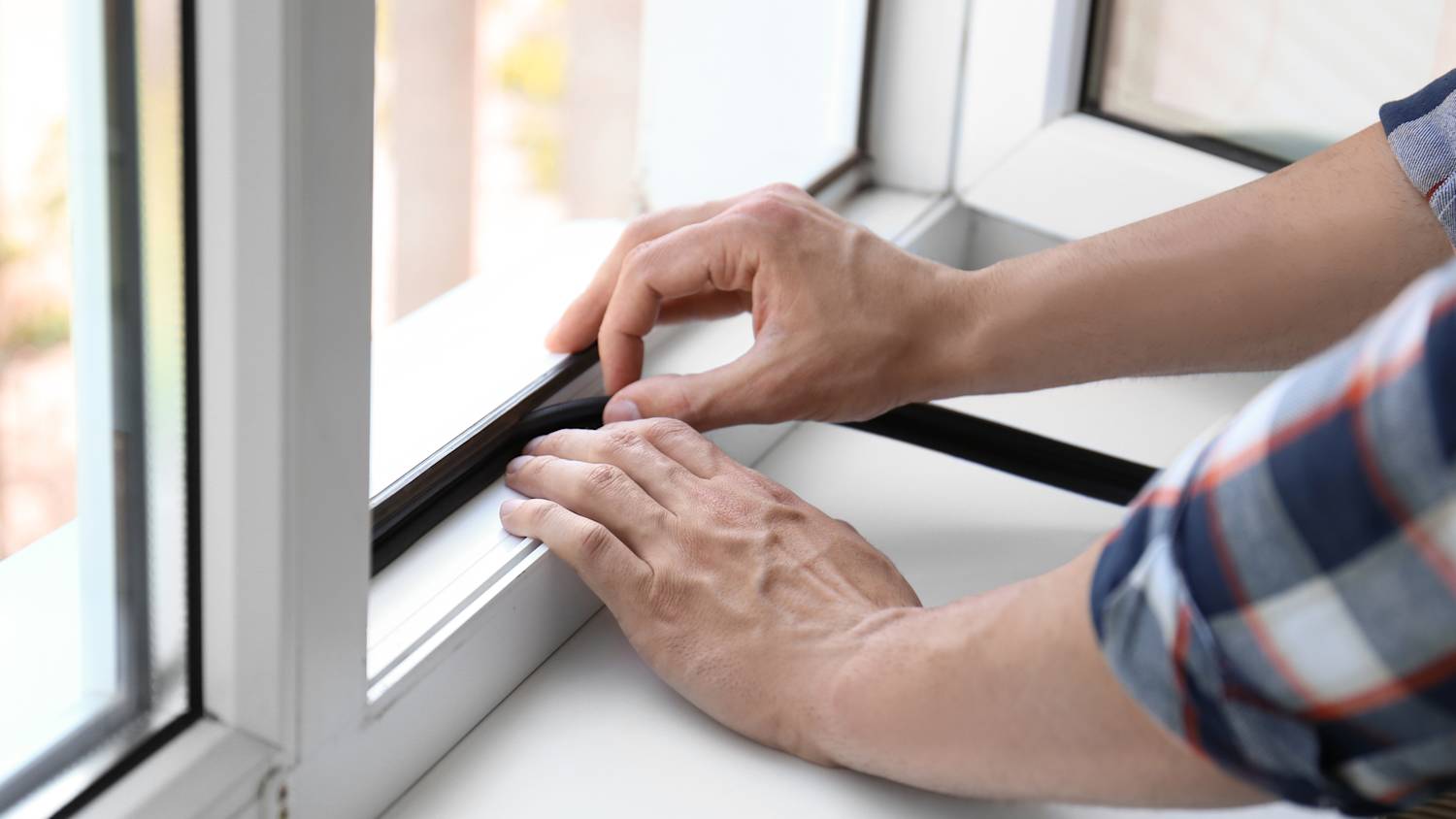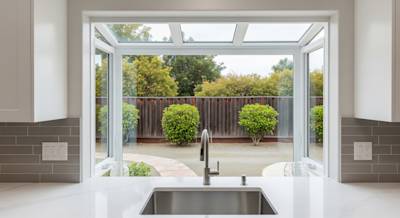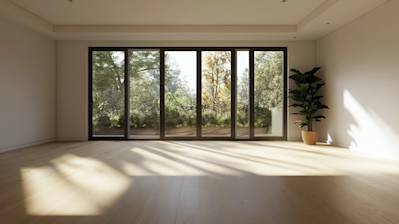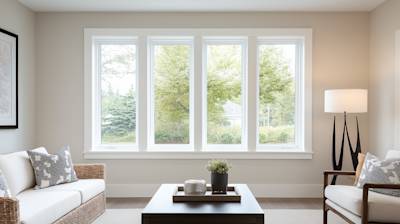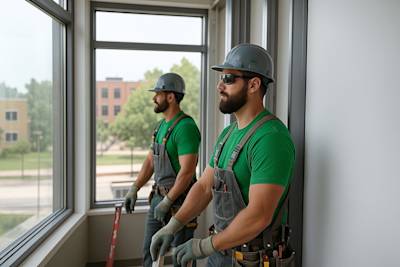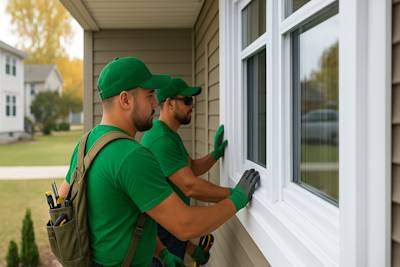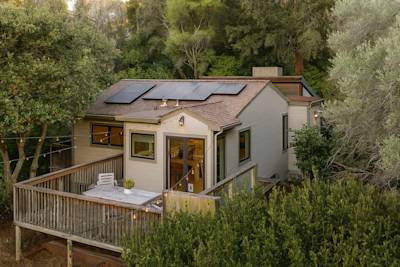With the recent awareness about the need for energy efficiency in homes, window insulation has become an increasingly important topic. For those who aren't familiar, window insulation involves adding an extra barrier to your windows to keep the desired temperature in your home regulated. Not only does it help reduce energy usage, thereby saving on energy bills, but it also helps create a more comfortable interior environment. In this article, we will dive into the details of window insulation, exploring what it is, its types and how to install it.
The Basics of Window Insulation
Window insulation works by trapping a layer of air between the window and the extra layer of insulative material, preventing heat from escaping during winter and cold air from escaping during summer. There are various forms of window insulation, from film to weatherstripping, which can all help to enhance the energy efficiency of your home.
Different Types of Window Insulation
Insulating Window Film
Insulating or thermal window film is a type of plastic film which can be applied directly onto the window. It creates a barrier that prevents heat exchange. This sort of film is clear, so it doesn't obstruct natural light from entering the room.
Sealant Foam
Sealant foams, typically made from polyurethane or latex, are used to seal cracks and gaps around window frames. They expand on application, effectively blocking cold air from entering or warm air from leaving.
Weatherstripping
Weatherstripping is another popular window insulation technique. This involves applying a thin strip of material around the window sashes, which seals gaps and helps keep both warm and cool air inside the house, depending on the season.
Thermal Curtains and Blinds
Thermal curtains and blinds are made from insulative material and when properly installed, they can effectively prevent heat exchange through windows. While these are not directly applied to the windows, they still perform a similar role.
Installation of Window Insulation
Installing window insulation is a straightforward process for most types. However, for effective insulation, it's important to follow the correct procedure.
Installing Insulating Window Film
- Clean the window thoroughly before beginning the installation process.
- Accurately measure the window and cut the film accordingly. Allow some extra inches for adjustments.
- Apply a thin layer of soapy water on the window. This helps the insulating film stick to the window.
- Carefully apply the film onto the window. Smoothen it out to avoid any bubbles or creases.
Applying Sealant Foam
- Make sure all windows are closed before you begin.
- Shake the can well, hold it upright and begin spraying around the frames of the window.
- Allow the foam to expand and fill the cracks and gaps. Trim any excess once it has cured fully.
Applying Weatherstripping
- Measure your window carefully to determine the length of weatherstripping required.
- Cut the weatherstripping to size and adhere it to the sashes of the window according to manufacturer’s instructions.
- Make sure all edges are well sealed.
Window insulation is a cost-effective and eco-friendly way to maintain a comfortable temperature inside your home. It prevents unnecessary energy consumption and can significantly lower your heating and cooling costs. With easy installation processes and a variety of types to choose from, window insulation provides a great opportunity for energy efficiency in almost any home.
Frequently Asked Questions on Window Insulation
Why is Window Insulation Important for Homeowners?
Window insulation plays a vital role as it reduces heat loss during the colder months and keeps the cool air inside during summer. It makes your home more comfortable, decreases energy consumption, and helps reduce your utility bills. It minimizes the need for artificial temperature control, thus being an eco-friendly solution.
What Types of Window Insulation are Available?
There are several types of window insulation available which include, among others, double glazing, insulated window film, thermal curtains, and draught stoppers. Each has their unique qualities, suitable for different needs and budgets. When determining the right insulation method, factors such as window size, location, climate, and budget need to be considered.
How Does Double Glazing Window Insulation Work?
Double glazing is a window insulation method that entails having two glass panes with a vacuum or gas-filled space in between. This space acts as an insulating barrier, reducing the amount of heat transfer, thus keeping your home warmer in the winter and cooler in the summer. It also aids in sound proofing.
What is Insulated Window Film?
Insulated window film is a type of window insulation that consists of a thin plastic film which is applied on the inside of the window. It works by reflecting radiant heat back into the room, thereby aiding in heat retention. It's a cost-effective solution and an excellent way to improve energy efficiency without changing the physical appearance of your windows.
Is it Worth Installing Thermal Curtains for Window Insulation?
Yes, thermal curtains offer an effective form of window insulation that can contribute to energy savings. They are made of a dense fabric with a thermal lining that prevents heat loss during winter and blocks sunlight during summer, thereby reducing the workload on your heating and cooling systems. They also provide the added benefit of reducing noise levels and can enhance your interior decor.
Can I Install Window Insulation Myself?
Yes, certain types of window insulation, such as window film and draft stoppers, can be installed DIY. However, for more comprehensive and durable solutions such as double glazing, it's recommended to hire a professional. They'll ensure proper installation, which is crucial to the effectiveness of the insulation and the overall longevity of the product.
What is the Lifespan of Window Insulation?
The lifespan of window insulation largely depends on the type of insulation and the quality of installation. For instance, well-installed double glazing can last for up to 15-20 years, while insulated window film typically needs to be replaced every few years.
Does Window Insulation Provide Any Soundproofing Benefits?
Yes, certain types of window insulation also offer soundproofing benefits. In particular, double glazing acts as a barrier for sound waves, which can reduce noise pollution from outside. Similarly, thermal curtains can decrease outside noise levels due to their dense fabric.
Can Window Insulation help in Reducing Condensation?
Indeed, effective window insulation can substantially reduce window condensation by maintaining a higher surface temperature of the interior glass. This minimizes the difference in temperature between the glass and the room, which is a common cause for condensation.
Does Window Insulation Damage Window Frames or Glass?
Properly installed window insulation does not damage window frames or the glass itself. However, faulty or incorrect installation can potentially lead to damages. For instance, sticking window film improperly can leave residues on the glass, while inadequately installed double-glazing can cause a pressure build-up leading to the glass cracking.
Pros and Cons of Window Insulation
Pros of Insulating Windows
Energy Efficiency
One of the major benefits of window insulation is increased energy efficiency. Insulated windows can significantly reduce the amount of heat that escapes from your house in winter and enters in summer, leading to the following advantages:
- Lower Heating and Cooling Costs: Insulation reduces the need for artificial heating and cooling, thereby reducing your energy costs.
- Reduced Carbon Footprint: By consuming less energy for heating and cooling, you reduce your carbon footprint and contribute to environmental conservation.
Comfort
Insulated windows provide a more comfortable living environment. Benefits include:
- Temperature Regulation: Temperature fluctuations are minimized, providing a more consistent indoor environment.
- Reduced Condensation: Window insulation can help to minimize condensation by reducing the difference in temperature between the window surface and the indoor air. This can help to extend the life of your windows and reduce mold problems.
Noise Reduction
Insulated windows can significantly reduce the level of noise from outside, providing a quieter and more peaceful living environment.
Cons of Insulating Windows
Initial Cost
One of the biggest downsides of window insulation is the high initial cost. This can include:
- Cost of Materials: Insulation materials can be quite expensive, particularly if you opt for high-quality, energy-efficient windows.
- Installation Costs: Professional installation can be pricey, especially if it involves significant structural changes. Installing insulated windows on your own can be time consuming and technically challenging.
Maintenance
Maintaining insulated windows can be more complex and costly than regular windows. The more detailed points are:
- Replacement Cost: Due to their complex design and construction, insulated windows can be more expensive to replace if damaged.
- Cleaning: Insulated windows can be more difficult to clean, especially if they are double glazed or have reflective coatings.
Less Natural Light
Some types of window insulation can reduce the amount of natural light that enters a room. Specifically:
- Reflective Coatings: While they can help to control heat gain and loss, reflective coatings can also decrease the amount of light passing through the glass.
- Frosted or Textured Glass: These window types can provide privacy and diffuse light, but they also limit the amount of direct sunlight entering a room.
Architectural Limitations
In some cases, installing insulated windows may not be practical due to architectural constraints or aesthetic considerations. For instance:
- Historical or Listed Buildings: Insulated windows may not be suitable for old or listed buildings that are subject to strict renovation guidelines.
- Aesthetic Considerations: Modern insulated windows may not suit the architectural style of certain properties.
In summary, while window insulation comes with a series of benefits that make it a worthwhile investment, it is essential to consider the potential drawbacks before you make a decision. Factors such as your budget, property characteristics, and personal preferences will play a significant role in determining whether insulated windows are the right option for you.
Summary
Lastly, window insulation plays a significant role in energy-savings. As it reduces heat transfer, you can maintain a comfortable in-house temperature without excessive use of heaters or air conditioners. Lower energy consumption not only reduces your utility bills, but also contributes significantly to environmental preservation.
Moreover, window insulation offers a simple and effective solution for noise reduction. By insulating your windows, outside noise is significantly reduced, creating a quieter and more relaxed indoor environment. This makes it an excellent choice for homes in busy areas or near traffic-congested streets.
Finally, window insulation also has a positive impact on the longevity of your windows. It provides an extra layer of protection against harsh weather conditions, dust and moisture, which can cause wear and tear over time. So, investing in window insulation can also save money on potential future window repair or replacement costs.
About GVD Renovations & Remodeling
Welcome to GVD Renovations & Remodeling, a Sacramento-based full service remodel and renovation company! Since our establishment, we've been transforming homes with an unparalleled commitment to quality. Our team, brimming with professionals with a passion for craftsmanship, bring your home improvement dreams to life. From simple upgrades in kitchen countertops to large scale bathroom renovations, we prioritize your vision and offer exceptional services stitched with diligence, professionalism, and the beauty of creative transformation. Choose peace, choose passion, choose GVD Renovations & Remodeling.
This article is for general information only and not professional advice. Always consult a licensed contractor before making project decisions. Product details, specifications, or warranties may have changed since publication. Brand and product mentions reflect opinion, not endorsements or guarantees.
Tags: window insulation, energy efficiency, home improvement,


